MercoPress. South Atlantic News Agency
Economy
-
Saturday, June 15th 2013 - 02:33 UTC
Uruguay’s economy expands 3.7% in the first quarter compared to a year ago
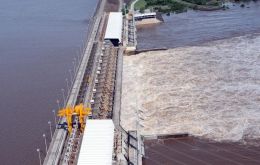
Uruguay’s economy expanded 1.2% in the first quarter of the year compared to the last quarter of 2012, which had a poor performance of 0.1%, according to the latest release from the Central Bank. Likewise in the first quarter the economy increased 3.7% over the same period a year ago.
-
Friday, June 14th 2013 - 23:20 UTC
Isle of Man hits back at G8 over tax evasion and questions secrecy of UK and US banks
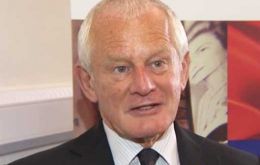
The Isle of Man and Jersey have hit back at accusations that they facilitate tax evasion and avoidance ahead of next week's G8 summit. The offshore jurisdictions, frequently described as tax havens, suggest recent pressure from world leaders is politically motivated.
-
Friday, June 14th 2013 - 23:17 UTC
Brazil pumps more consumer credit lines trying to bolster the economy

The administration of President Dilma Rousseff will hand out 17 billion Reais (8 bn dollars) in cheap loans for home appliance purchases it was announced this week, a further attempt bolster Brazilians' buying power as an anemic economy and high inflation erode its approval rating.
-
Friday, June 14th 2013 - 03:42 UTC
Thinking in October, Cristina Fernandez demands from banks a new round of low cost business loans

Argentina will demand that banks grant a new round of low-cost business loans from July through December, totalling about 3.8 billion dollars, the central bank said on Thursday. The decision comes four months ahead of mid-term elections next October.
-
Friday, June 14th 2013 - 03:25 UTC
Structural reform to ensure faster growth remains a main challenge for Latam economies
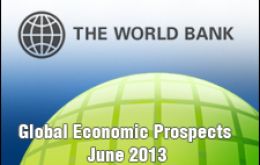
Finding the optimal balance between macroeconomic policies to stimulate domestic demand in the short term and structural reforms to enable faster growth over the longer run, remain as the main challenges for the Latinamerican economies, according to the latest report from the World Bank.
-
Thursday, June 13th 2013 - 23:49 UTC
Paraguay and Mexico advancing towards an economic complementation accord
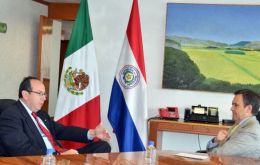
Technical groups from Paraguay and Mexico advanced on Wednesday talks for the creation of an Economic complementation Accord in the framework of the Latam Integration Association, ALADI, which is considered the “step previous to a full free trade treaty”, reported from Asuncion Paraguay’s foreign ministry.
-
Thursday, June 13th 2013 - 22:22 UTC
Peruvian president Humala wants the US as observer of the Pacific Alliance
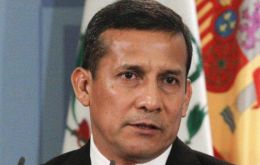
Peruvian president Ollanta Humala said he favoured the incorporation of the United States as observer to the Alliance of the Pacific, a free trade, pro-business and open market group made up of Chile, Colombia, Mexico and Peru.
-
Thursday, June 13th 2013 - 07:17 UTC
Wages in the UK have fallen dramatically since the recession, helping to keep jobs

Wages in the United Kingdom have fallen more in real terms during the current economic downturn than ever before, according to a report. One third of workers who stayed in the same job saw a wage cut or freeze between 2010 and 2011, said the Institute for Fiscal Studies (IFS).
-
Thursday, June 13th 2013 - 07:13 UTC
World soccer star Messi involved in alleged fiscal hat-tricks

World famous Barcelona and Argentine striker Lionel Messi has declared on his Facebook page that he is “surprised” by accusations in Spain of tax avoidance.
-
Thursday, June 13th 2013 - 06:41 UTC
World Bank cuts global growth outlook as Europe remains in deep recession

The World Bank cut its outlook for global growth, saying the economy should expand more slowly this year than last as it cited a deeper-than-expected recession in Europe and a recent slowdown in some emerging markets such as BRIC members.
